launch
Latest

Orbital ATK's Taurus rocket finally makes it into space
Six and a half years after its last launch ended in failure, private spaceflight company Orbital ATK's Taurus-XL rocket -- now called Minotaur-C -- has made it into space. Since its maiden flight in 1994, the rocket has seen six successful launches and three failures, one of which led to the loss of NASA's Orbiting Carbon Observatory, in 2009. But after a redesign that sees the Minotaur-C reimagined as hybrid of the company's Minotaur, Taurus, and Pegasus rockets, it successfully launched from Vandenberg Air Force Base in California on Tuesday. The rocket is equipped with four solid-fueled rocket stages, stands at 92 feet (28 meters) tall and can deliver payloads of up to 3,500 lbs into orbit.

'Super Mario Odyssey' is selling even faster than 'Zelda'
The Nintendo Switch has been a massive hit since its launch in March, selling more than seven million units worldwide so far, putting it on track to beat Wii U lifetime sales in just a year. But these aren't the only numbers Nintendo gets to flaunt. According to its financial briefing released today, the company estimates sales of Super Mario Odyssey have exceeded two million units in just three days. In other words, since it hit the shelves, the game has sold at a rate of 463 copies a minute (or eight per second).

Vector plans three 'microsatellite' launches in Virginia
Virginia's governor announced that microsatellite delivery company Vector has arranged a trio of launches from the state's spaceport on Wallops Island. While the notice gave no information on the payloads or customers, they will be very small compared to typical commercial satellites: The company's launch vehicle, the 43-foot Vector-R, can only carry 145 pounds into orbit.
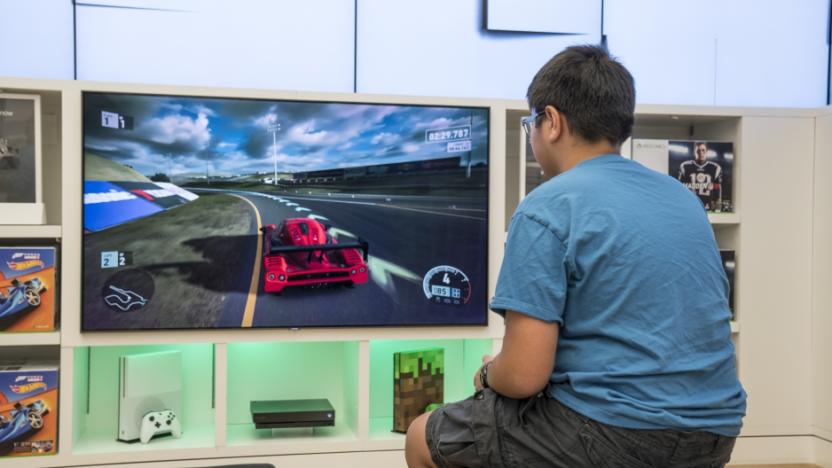
Try the Xbox One X before it launches at select Microsoft Stores
With less than a month to go before you can get your hands on the new, more powerful Xbox One X, Microsoft is giving the unconvinced a chance to try it out at the company's retail outlets. You can try the new console connected to a 4K display at flagship Microsoft Store locations like the one in New York and Sidney, along with spaces at Bellevue Square Mall and University Village. You'll also get to try out Forza Motorsport 7 on the new console, win prizes and see special guests.
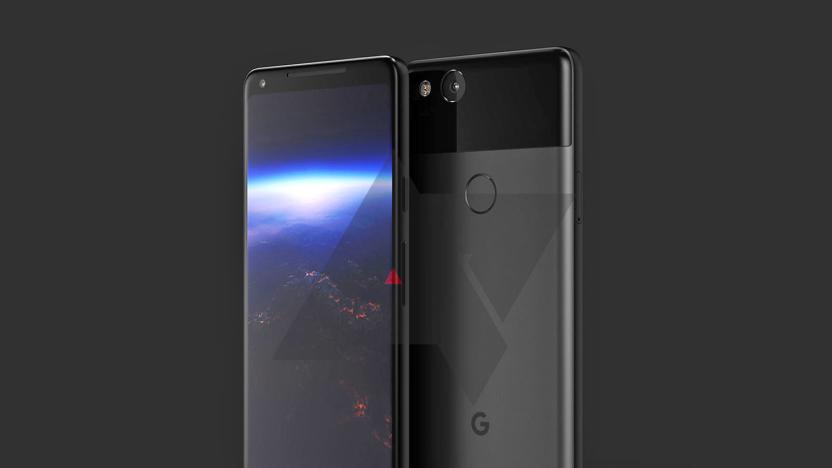
Google's next Pixel smartphones arrive October 4th
The next-gen Pixel smartphones will be launched on October 4th, just a day before rumors predicted, according to a new Google YouTube video (below). The search giant hasn't, naturally, revealed any details about it yet, but has made some pretty bold promises. It implies that the new models (reportedly a Pixel and Pixel XL, according to @evleaks) will have a better battery, more storage and a better camera than other models. It has even suggested that it will "understand you," no doubt a reference to Google Assistant.

'Final Fantasy XV' coming to PC early next year
Square Enix has milked Final Fantasy XV, offering not only PS4 and Xbox One console versions, but also a (bad) free mobile game, branded Sony Walkman and even a cookbook. What it doesn't have yet, surprisingly, is a Windows version of the game, but that's going to change soon. Final Fantasy XV Windows Edition is coming in early 2018, NVIDIA announced during its Gamescom press conference, and is of course loaded with NVIDIA tweaks and features.

SpaceX launches and lands two rockets in a single weekend
SpaceX's technical problems that caused an explosion last September seem well behind it, as it pulled off the rare feat of launching two rockets this weekend. On Friday, the Falcon 9 lofted a Bulgarian communications satellite into orbit from Florida's Kennedy Space Center, landing the recycled first stage at sea. On Sunday, it pulled off the trick again, sending ten Iridium-2 satellites into orbit from Vandenberg Air Force Base in California. Once again, it brought the first stage safely back to drone ship "Just Read the Instructions" despite visibly rough weather and rolling seas.

Air Force reveals difference between ULA and SpaceX launch prices
The US Air Force has revealed how much the government can save by having SpaceX launch some of its satellites instead of relying purely on United Launch Alliance. Launch prices used to be discussed in vague terms until the 2016 National Defense Authorization Act required the Department of Defense to include a budget for national security space programs in its annual reports. Now, the Air Force's budget request (PDF) for the next few years, which Ars Technica got its hands on, finally has solid numbers we can look at: It shows that the division expects to pay as much as $423 million per launch by the year 2021 if it allows ULA -- a Boeing and Lockheed joint venture -- to have a monopoly on its launches.

China bounced an 'unhackable' quantum signal between cities
The field of quantum cryptography, which seeks to transmit encrypted information using entangled quantum particles like photons, could help lay the groundwork for tomorrow's quantum networks but it faces a significant physical hurdle: entangled photons are crazy hard to transmit long distances. Even in fiber optic cables, they can only go about 150 miles before completely degrading. But a team of researchers from the Chinese Academy of Sciences may have the solution. You just have to send the photons 745 miles into space.
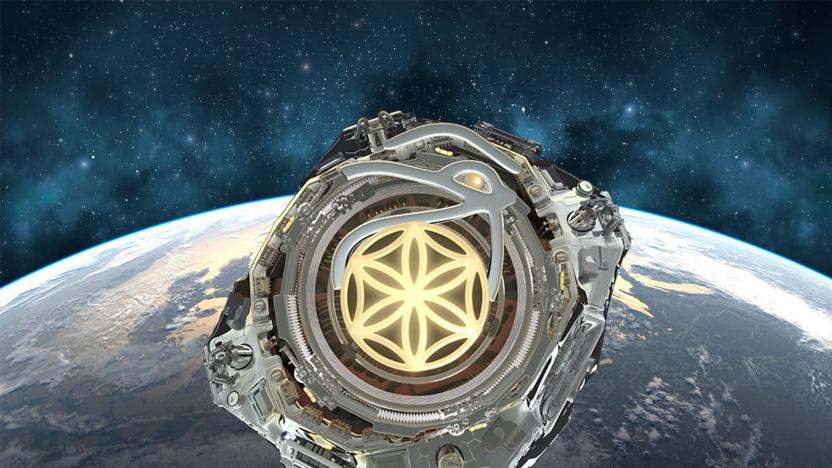
Virtual nation Asgardia will launch itself into space
Asgardia, also known as "The Space Nation," will launch a small satellite later this year. According to Asgardia's leader, Russian scientist Igor Ashurbeyli, the satellite will carry the nation's constitution, its flag and data stored by up to 1.5 million of its citizens.
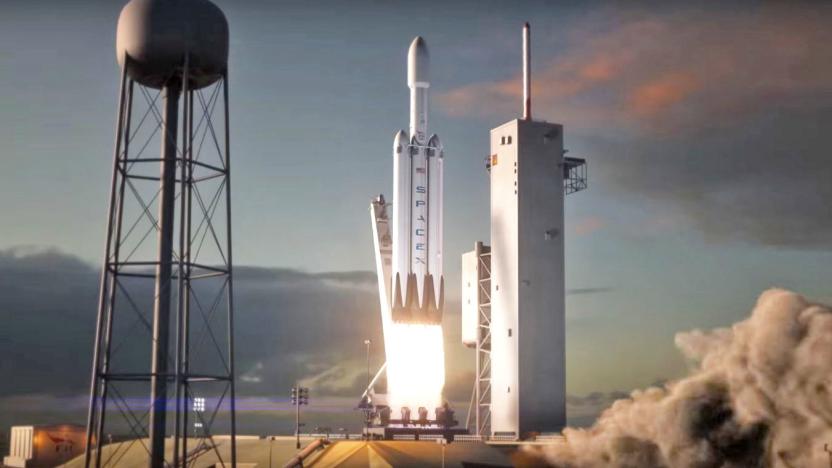
SpaceX could send its biggest rocket to space in three months
SpaceX is preparing a used booster for relaunch on June 17th, but it's apparently getting its heavy lift rocket ready for lift off sometime this year, as well. According to company chief Elon Musk's response to one of his Twitter followers, all three of the Falcon Heavy cores should be at Cape Canaveral in two to three months. If everything goes well, the rocket could make its way to space a month after that. That means the Falcon Heavy's first journey could take place as early as September, which is consistent with what the company has been planning for a while now.
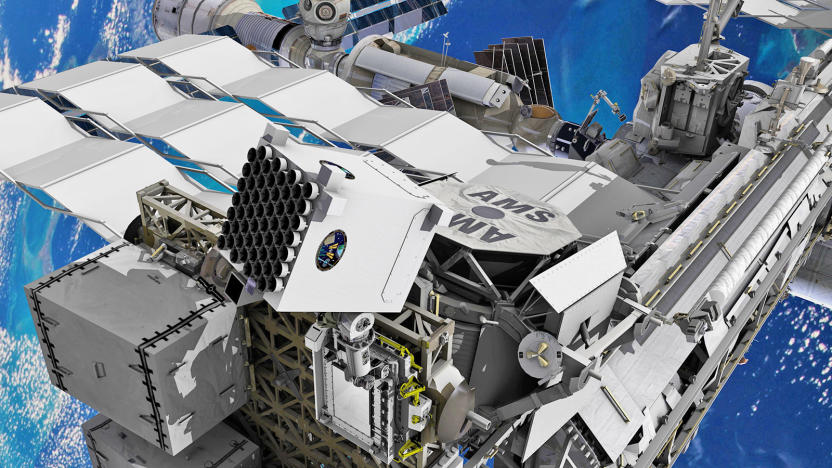
Watch SpaceX carry NASA's pulsar-observing instrument to the ISS
On June 1st, a SpaceX Falcon 9 rocket will carry supplies and new instruments to the ISS, including one designed to observe some of the strangest objects in the universe: neutron stars or pulsars. The Neutron Star Interior Composition Explorer (NICER) will be installed outside the ISS, where it will look for and study the extremely dense objects. Neutron stars begin their lives as stars around seven to 20 times the mass of our sun. When they collapse and cause a supernova explosion, they turn into a sphere that's only 12 miles across, with twice the mass of our sun squeezed inside. They're also called "pulsars" when they rotate hundreds of times per second.

SpaceX begins test-firing parts of its biggest rocket
Sorry folks, things are about to get heavy, by which we mean that SpaceX has begun test-firing the boosters for the Falcon Heavy. The company posted a clip of the event from last week, showing a side booster being put through its paces. Elon Musk subsequently tweeted that, when the Falcon Heavy launches, it'll be this powerful, but "times three." The CEO added that "one way or another, launch is guaranteed to be exciting."
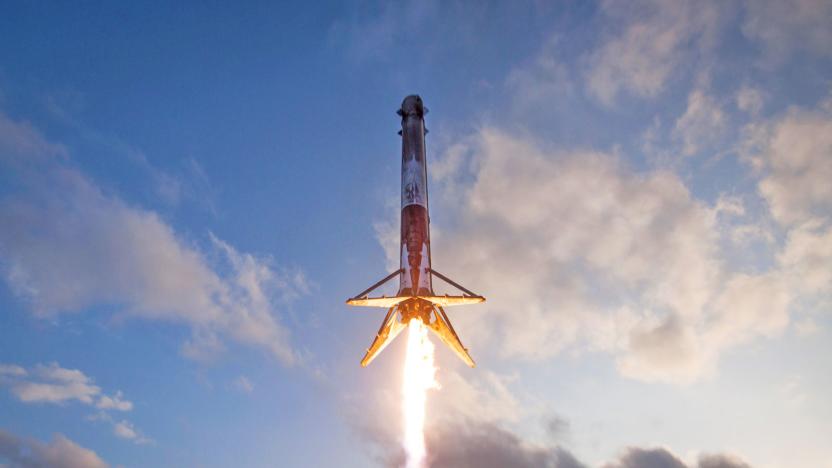
Watch SpaceX's second attempt at launching a US spy satellite
Yesterday morning, SpaceX had big plans for launching US spy satellite NROL-76 on the back of a Falcon 9 rocket at Cape Canaveral. Unfortunately, a sensor issue put paid to the idea, but just one day later, the company is back and attempting a do-over for the mission. At 7:15am ET, SpaceX will attempt to fire the secretive craft into the heavens and then, crucially, return the Falcon 9 to the ground.
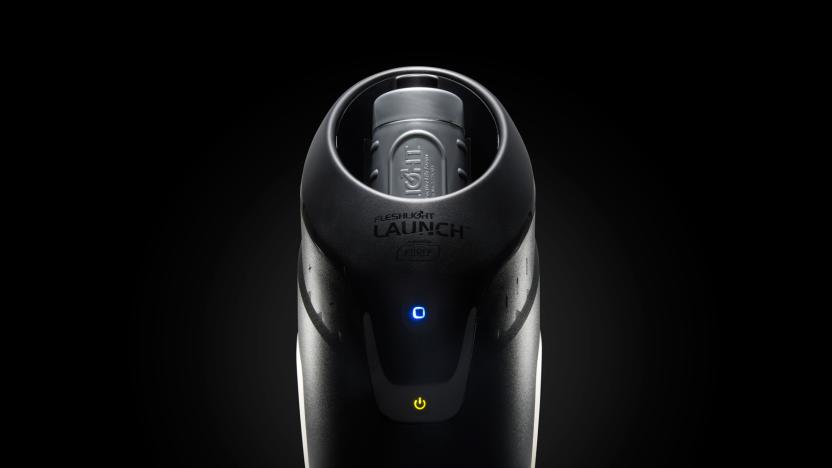
Finally, a good digital masturbator
NSFW Warning: This story may contain links to and descriptions or images of explicit sexual acts.

SpaceX releases video of its historic reused rocket landing
SpaceX made history last week when it successfully relaunched a previously-used rocket back into orbit (recovering the $6 million nosecone was just gravy). That rocket body could potentially be used yet again, given how spryly it set down on its drone barge, the Of Course I Still Love You, after delivering its SES-10 vehicle payload, if the company's Instagram post from Wednesday is any indication.

The Switch is the fastest-selling console in Nintendo history
If you've had a hard time finding a Nintendo Switch at the store, there may be good reason for that. The Friday through Saturday sales for Nintendo's latest console surpassed the first two-day sales for any system "in Nintendo history," according to tweets from the New York Times' Nick Wingfield. The info comes from an interview with Nintendo of America president Reggie Fils-Aime.
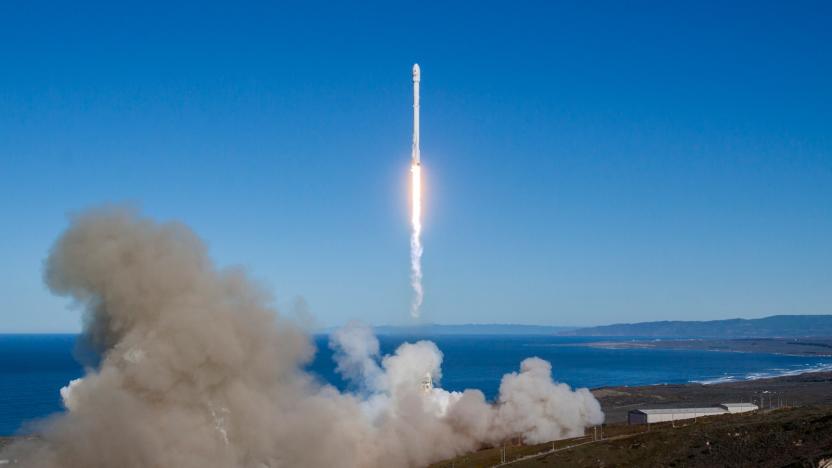
SpaceX's comeback launch was a success
2016 was a fairly good year for SpaceX, with Elon Musk's spaceflight company inching closer to developing a reusable rocket for missions. At least up until September, when a Falcon 9 rocket exploded during a pre-launch test on the pad at Cape Canaveral. The company quickly investigated and found that the craft's liquid oxygen had leaked out of a tank, with the resulting friction causing ignition. At last, however, SpaceX is ready to turn a corner: the private outfit has returned to flight by launching a Falcon 9 from Vandenberg Air Force Base, delivering 10 Iridium Next satellites into orbit.

SpaceX delays its comeback launch to January 14th
SpaceX's much-vaunted return to flight just hit a snag. Iridium has revealed that the Falcon 9 rocket launch has been pushed pack several days to January 14th, at 12:54PM Eastern. Why the long postponement when most delays tend to be a day or two at most? Simply put, the weather at Vandenberg Air Force Base will just be that terrible -- there are "high winds and rain" in the forecast for the next several days.

Watch NASA's third attempt at launching CYGNSS to space
NASA had to scrub its second attempt to launch eight weather microsatellites to space yet again. Its new target launch date? Today, December 15th, at 8:26AM Eastern time. The agency's Cyclone Global Navigation Satellite System (CYGNSS) mission was supposed to leave our planet on December 12th and then again on December 14th. Unfortunately, the first one had to be delayed due to a problem with the hydraulic pump the controls the release of Orbital ATK's Pegasus rocket from its modified aircraft carrier. See, unlike typical rockets that lift off from the ground, Pegasus was designed to be dropped from an airplane. The second attempt, on the other hand, had to be scrapped due to an issue with the flight data used by the spacecraft's software.









